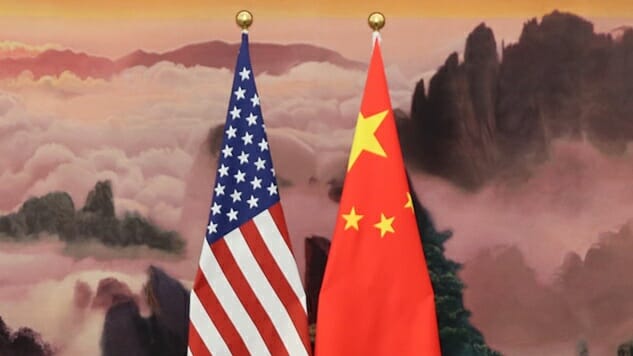Chinese Authoritarianism Is Being Emboldened by U.S. Tech Companies
Capitalism and a lack of global leadership are helping expand the oppressive Chinese surveillance state
Photo by Lintao Zhang/Getty
In November of 2017, Apple’s policy chief, Cynthia Hogan, wrote a letter to Senators Patrick Leahy and Ted Cruz asserting that Apple is “convinced that Apple can best promote fundamental rights, including the right of free expression, by being engaged even where we may disagree with a particular country’s law.” This was in response to a year’s worth of reports about how Apple was bowing to the authoritarian state’s authoritarianism, amid growing criticisms of the company’s deafening silence as the revelations continued to pour in.
A new report from Wired makes it clear that these problems did not remain in 2017, and Apple’s letter to the Senate did not tell the whole story. Per Wired:
Apple and Microsoft censor information in China as a condition of accessing the country’s lucrative but circumscribed population of more than 800 million netizens.
For Microsoft, that means keeping content the government deems sensitive out of Bing search results and off of its business networking site LinkedIn. Apple polices its app store differently in China than in other parts of the world, at the government’s direction. The company has said that it removes VPN apps that could be used to bypass China’s so-called Great Firewall, which blocks access to many overseas sites. A tool launched in February by Greatfire.org, which monitors Chinese censorship, indicates that anonymity tools and apps about Tibet and Falun Gong that are available in versions of the app store around the world do not appear in China’s.
Now, this is anything but a simple case, because even a multinational corporation as powerful as Apple can only have so much sway over a sprawling government like China’s. Apple’s claim that they can “promote fundamental rights” while still “disagree[ing] with a particular country’s law” sounds nice in theory, but when we change it from “particular country” to “China,” the harsh reality becomes much more difficult to deal with.
-

-

-

-

-

-

-

-

-

-

-

-

-

-

-

-

-

-

-

-

-

-

-

-

-

-

-

-

-

-

-

-

-

-

-

-

-

-

-

-








































